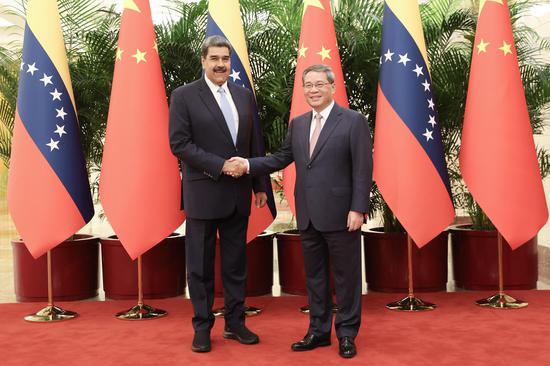China's Ministry of State Security (MSS) released an article on Wednesday revealing that U.S.' infiltration of Huawei headquarters' servers can be traced back to 2009, while also disposing despicable methods of U.S. intelligence agencies in cyber espionage, which include establishing cyberattack arsenals, coercing relevant technology companies to cooperate, and distorting the truth to accuse others.
The MSS firstly revealed the despicable method of U.S.' establishing cyberattack arsenals, saying that the U.S. intelligence agencies have been resorting to extreme measures to conduct surveillance, espionage, and cyberattacks across multiple countries worldwide, including China. Particularly, the U.S.' National Security Agency (NSA), through its Office of Tailored Access Operations (TAO) and advanced arsenal, has repeatedly carried out systematic and platform-based attacks on China, attempting to steal important data resources.
According to the MSS, TAO began to invade Huawei headquarters' servers and carry out continuous monitoring back to 2009. In September 2022, TAO was found to have carried out tens of thousands of malicious cyberattacks over a prolonged period targeting China, including Northwestern Polytechnical University (NPU). The U.S. controlled tens of thousands of network devices and stole a vast amount of high-value data.
The ability of U.S. intelligence agencies to launch large-scale cyberattacks relies on a diverse range of cyber weapons. Since 2022, China's cybersecurity agencies have disclosed multiple cyber weapons used by U.S. intelligence agencies, such as Bvp47, Quantum, FOXACID, and Hive.
U.S. intelligence agencies used these sophisticated weapons to carry out network attacks and cyber espionage targeting 45 countries and regions worldwide, including China and Russia, for over a decade. The targets of these cyberattacks include crucial sectors such as telecommunications, scientific research, economy, energy, and military, the MSS noted.
The U.S. also forced technology companies to cooperate. The U.S. government, citing national security reasons, forcefully implanted backdoors into the devices, software, and applications of relevant technology companies through acts such as the Foreign Intelligence Surveillance Act. By using methods like embedded code and vulnerability attacks, the U.S. achieved global data monitoring and theft, leveraging the influence of global technology companies.
In December 2020, U.S. location data company X-Mode Social was exposed for obtaining location data through an embedded software development kit in mobile applications and selling the data to contractors closely associated with the U.S. military and intelligence agencies. In April 2022, Anomaly Six, a company with ties to military intelligence, was exposed for embedding its internal tracking software development kit into numerous mobile applications, thereby tracking the location data and browsing information of billions of mobile phones worldwide, and aggregating and selling the data to the U.S. government.
The U.S. was found to have been carrying out extensive cyberattacks and espionage activities across the globe, while also fabricating security reports in a creative manner, smearing China as the primary cyber threat actor and hyping the so-called Chinese cyber espionage issue, perfectly exemplifying its ability to distort the truth.
It is well known that the U.S. has long been engaged in large-scale surveillance and espionage activities against countries around the world, including its allies, leveraging its technological advantage. Since the exposure of the Prism Gate incident in 2013, China's relevant cybersecurity agencies have repeatedly discovered the involvement of the U.S. in cyberattacks targeting China.
In recent years, the U.S. has intensified its Hunt Forward Operations (HFOs), with clear targets being Russia, Iran, China, and North Korea. U.S. Cyber Command is becoming an expeditionary force, disguising its actions as HFOs and proactive defense, while conducting cyberattacks and espionage against other countries.
However, the U.S. continues to portray itself as a victim of cyberattacks at the same time. Under the banner of maintaining cyber security, the U.S. is instigating and coercing other countries to join the so-called Clean Network program, attempting to eliminate Chinese companies from the international cyber market.
In fact, the "Clean Network" is a sham, while suppressing opponents and maintaining hegemony is U.S.' real intention. In response, the Chinese government has repeatedly urged the U.S. to deeply reflect on its own actions and to cease global cyberattacks and espionage activities, as well as to stop using false information channels to muddy public opinion, the MSS noted.
Recently, China's National Computer Virus Emergency Response Center reported that during the handling of a cyberattack case on NPU, they successfully extracted a spyware sample called Second Date, which is a network spy weapon developed by the NSA and operates covertly in thousands of network devices spread across multiple countries worldwide.
The MSS stressed that cyberspace is increasingly becoming a new battlefield for safeguarding national security. Without cybersecurity, there is no national security, and no stable operation of the economy and society, while the interests of the general public are also difficult to guarantee. The MSS called for solidarity to strengthen security awareness, and to enhance security capabilities, so as to jointly safeguard cybersecurity.


















































 京公网安备 11010202009201号
京公网安备 11010202009201号